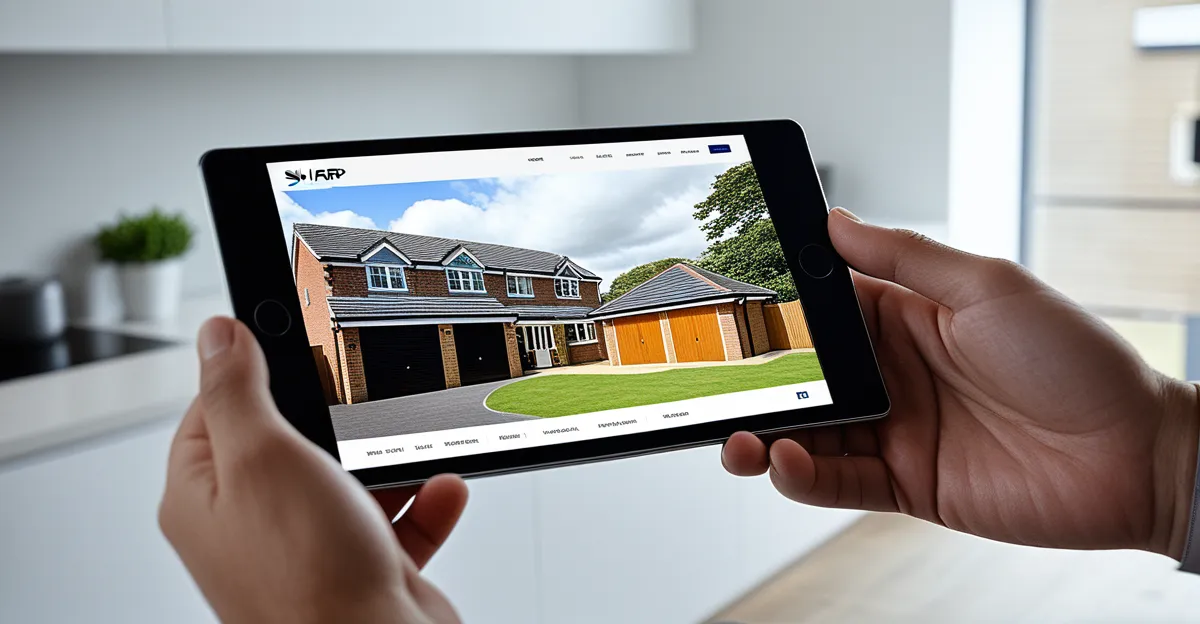Overview of Technological Advancements in UK Real Estate Finance
The landscape of UK real estate finance has undergone significant technological advancements, transforming the way transactions are conducted and investments are made. These innovations serve as a catalyst, driving efficiency and transparency in the sector.
Current State of the UK Real Estate Market
The UK real estate market remains dynamic, fueled by both domestic and international investments. Technological innovations have reshaped traditional processes, creating new opportunities for stakeholders. Technologies such as artificial intelligence and blockchain are becoming integral in evaluating properties, facilitating secure transactions, and enhancing decision-making.
This might interest you : How Can Investors Make Sustainable Choices in the UK Real Estate Market?
Impact of Technology on the Sector
Technology’s influence is evident, providing solutions that streamline operations and reduce costs. For instance, digital platforms have simplified property management through automation, while predictive analytics offers insights into market trends and consumer behaviour. These advancements not only improve operational efficiency but also provide a competitive edge in the ever-evolving real estate market.
By embracing these technological strides, the UK real estate sector is poised for continued growth and innovation, ensuring that it remains a vital component of the broader economy.
Also to read : How Can the UK Real Estate Market Reshape the Future of Finance?
Role of Fintech in Real Estate Financing
Fintech solutions are revolutionising the landscape of real estate finance by introducing innovations such as investment platforms and financial technology applications. These solutions not only facilitate more efficient transactions but also streamline investment processes, offering both individuals and businesses novel ways to manage their real estate portfolios. Financial technology, or fintech, encompasses a variety of tools ranging from digital payment systems to sophisticated analytics platforms. These innovations are reshaping traditional real estate financing by enhancing accessibility and transparency for all stakeholders involved.
In the UK, fintech innovations have made significant strides, with numerous successful implementations witnessed across the sector. Case studies highlight platforms that have successfully integrated fintech solutions to automate and simplify property dealing processes. These platforms employ technologies like blockchain for secure digital transactions, reflecting a broader trend of technological adoption in real estate finance.
User adoption rates for these financial technology tools are steadily increasing, as more consumers and investors recognise the benefits of streamlined processes and enhanced security. Market penetration of fintech in UK real estate finance is fuelled by the demand for efficient solutions and the desire to reduce transaction friction, positioning fintech solutions as critical components of modern real estate financing.
Blockchain Technology in Real Estate Transactions
Blockchain technology is revolutionizing the real estate industry by introducing digital transactions that enhance transparency and security. As a distributed ledger system, blockchain ensures that all transaction data is stored in a way that is both tamper-proof and easily accessible, thus minimizing the risk of fraud.
One of the standout applications of blockchain in real estate is the use of smart contracts. These self-executing contracts automate agreements without the need for intermediaries, thereby reducing processing time and costs. For example, in UK property transactions, smart contracts can facilitate the automatic transfer of ownership once pre-set conditions are met.
The benefits extend beyond security; blockchain also offers significant improvements in efficiency. Traditional property transactions often involve multiple parties and layers of verification. By contrast, blockchain streamlines this process by storing all necessary information in a single, immutable record. This means faster transaction times, reduced paperwork, and greater overall efficiency.
In the UK, real-life examples of blockchain usage include pilot projects in property registries that aim to create a fully digitized process for recording and managing property titles. These initiatives are laying the groundwork for a future where blockchain could become the standard in real estate transactions. With its potential to transform the sector, blockchain technology is set to play a pivotal role in shaping the future of UK real estate finance.
Artificial Intelligence and Data Analytics
Artificial intelligence (AI) is revolutionizing the way property valuation and investment decisions are made in the UK real estate market. AI technologies facilitate more precise and efficient evaluations by processing vast datasets, which traditional methods could not handle as efficiently. This technology aids in understanding complex market variables, providing insights that drive investment strategies.
Furthermore, data analytics play a crucial role in assessing market trends and risks. Through predictive modeling, real estate professionals can identify patterns that predict future market behavior, offering a significant advantage in anticipating market shifts. This kind of analysis helps stakeholders make informed decisions by providing a deeper understanding of potential risks and opportunities.
AI-driven tools are also enhancing property management and customer service. For example, automated systems powered by AI can manage routine tasks such as maintenance requests and tenant communication, thus improving efficiency. These tools not only streamline operations but also enhance customer satisfaction by providing timely responses and personalized services. As AI and data analytics continue to evolve, their impact on UK real estate finance is expected to grow, leading to even more sophisticated decision-making processes.
Regulatory Technologies (RegTech) in Real Estate Finance
In the realm of UK real estate finance, regulatory technologies, or RegTech, have emerged as pivotal tools in ensuring compliance and effective risk management. These technological advancements are crucial for navigating the increasingly complex regulatory environment, helping businesses streamline operations and minimize compliance costs.
RegTech solutions automate compliance processes, capturing intricate legal and regulatory requirements to simplify adherence to rules. As a result, real estate entities can efficiently manage risks related to fraud, money laundering, and data breaches, which are significant concerns in the sector.
In the UK, regulatory changes have accelerated the adoption of RegTech. Platforms are designed to smoothly align with government regulations, reflecting a direct response to evolving policies. This is evident in the way real estate companies utilize RegTech to automate reporting obligations and verify client data, which enhances both accuracy and transparency.
Notable examples of RegTech companies include CUBE, which offers software solutions specific to compliance management, and Trunomi, providing consent and data rights management frameworks. These companies are at the forefront, demonstrating how specialized technology can transform compliance from a complex task into a seamless aspect of business operations. With these advancements, RegTech is not merely a trend but a necessity for the future stability and competitiveness of the real estate finance industry.
Future Trends in Real Estate Finance Technology
As we look towards the future, emerging technologies in the UK real estate finance sector are set to redefine the landscape. Industry experts predict that ongoing technological evolution will continue to drive innovation, efficiency, and transparency. Expect advancements in areas such as automation and virtual reality, which can streamline transactions and enhance property inspections.
One exciting development is the potential for increased use of augmented reality (AR) to assess properties remotely. This can revolutionise property viewings by offering potential buyers an immersive experience from anywhere in the world. Additionally, the integration of the Internet of Things (IoT) can bring greater connectivity and data-driven insights into buildings, allowing for smarter management and energy efficiency.
However, the integration of these future trends is not without challenges. As technology becomes more embedded, data security and privacy concerns will need careful management. Real estate firms must also invest in digital infrastructure to keep pace with rapid advancements, ensuring they remain competitive. As new technologies emerge, adaptability will be key to successful implementation in the UK real estate finance sector.


